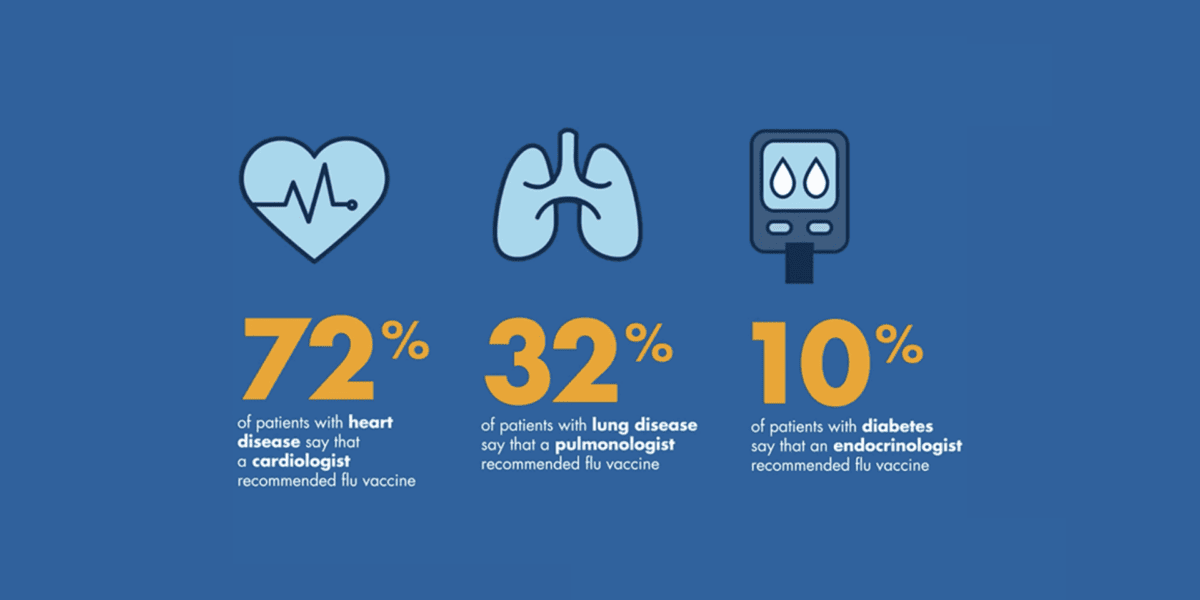Healthcare professionals play an important role in strongly recommending annual influenza (flu) vaccination for everyone age 6 months and older. It is also important for healthcare professionals to get vaccinated against flu each year to both lead by example and help protect their patients and reduce transmission in healthcare settings.
Since it takes about 2 weeks after vaccination for antibodies to develop in the body to protect against influenza virus infection, it is best to get vaccinated before flu begins spreading in the community. But getting vaccinated later in the season is still beneficial, as viruses may continue to circulate.
Healthcare Professionals and Flu Vaccination Rates
- Healthcare professionals, particularly those who are unvaccinated, can be sources of flu in healthcare settings. This is particularly troublesome for the vulnerable patients in their care, who may be at increased risk of severe complications, including flu-related hospitalization and death.
- Outbreaks have been documented in high-risk patient care areas, including organ transplant units, long-term care facilities, and neonatal intensive care units.
- During the 2023-2024 season, only 75% of healthcare professionals were vaccinated against flu.
Benefits of Flu Vaccination
- Flu vaccination is an important patient safety issue. Unvaccinated healthcare professionals can spread flu to patients, coworkers, and family members, leading to flu-related illnesses and deaths.
- Annual flu immunization of healthcare professionals:
- Prevents severe illnesses and deaths
- Protects patients, families, and coworkers
- Decreases use of sick leave
Reviewed September 2024
Source: Centers for Disease Control and Prevention
Related Resources
Show Up and Fight Flu Partner Toolkit
Graphics and other resources to raise awareness about the burden of flu and increase vaccination rates among US Black adults
Leading By Example
National initiative calling on community leaders to lead by example by making a commitment to disease prevention
2021 Chronic Health Conditions Surveys: Gaps between Healthcare Professionals and Adult Patients
NFID commissioned two national surveys in 2021 on flu and pneumococcal disease vaccination as well as communication between healthcare professionals and patients with chronic health conditions



